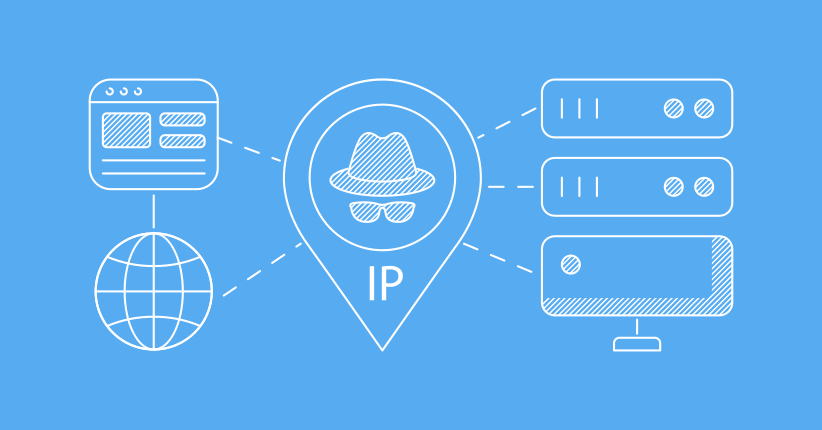Proxies for Web Scraping: What They Are and Why They Matter
Introduction
Proxies for web scraping act as intermediaries that mask your genuine IP address, rerouting your connection through multiple different servers. This mechanism prevents your true identity from being exposed, allowing you to harvest webpages without being flagged or limited. By funneling requests through varied, geographically dispersed proxies, you can gather information from domains that impose access hurdles while keeping your operations discreet and efficient. It’s a strategic layer that accelerates data retrieval while minimizing risk.
Key Advantages of Using Web Scraping Proxies
Using a web scraping proxy delivers several crucial advantages.
Evading IP bans and CAPTCHA hurdles is perhaps the most immediate. Sites that monitor high request volumes typically blacklist offending IP addresses, but proxies obscure your source address. When each request springs from a different IP, the site can’t chronicle the traffic back to a single scraper, permitting a steady data flow without interruptions for verification challenges.
Anonymity and security are also paramount. By masking your real ISP address and geographic information, proxies mask the identity of your data-gathering operation. This shields the scraper from legal inquiries and fortifies your internal systems against exposure. Your private network, data, and reputation remain insulated from the site’s scrutiny and any retaliatory measures.
Finally, proxies excel at unlocking geo-diverse content. Many platforms customize data by region; a proxy based in a specific country or city summons the exact localized version. This capability is invaluable for comparative research, price scraping, and monitoring region-specific trends, offering a comprehensive view across borders without needing boots on the ground in every market.
Types of Proxies and Their Best Use Cases
Residential Proxies
They borrow real IP addresses assigned to people’s homes, so your scraper blends in perfectly. This disguise is priceless for scraping that needs to run wide and for a long time without hitting bans. Overall, they let you fetch data safely and at scale.
Datacenter Proxies
These are speedy and inexpensive, but the IPs are clustered in data centers. Use them for straightforward tasks, like getting the same info quickly. They’re easy to spot, though, so run them when getting the data fast is your only goal.
Mobile Proxies
These routes traffic through smartphone networks. Since the IPs are assigned to real devices, websites tend to trust them and they switch often. They’re your best friend for scraping mobile apps or juggling numerous accounts without raising a flag.
ISP (Static Residential) Proxies
These hybrid proxies live in data centers but present themselves as regular home IPs. They strike a solid balance, serving data quickly while still masking your real location. Use them for high-volume scraping when you want speed but still worry about bans.
How to Choose a Trusted Proxy Provider
Essential Features to Consider
Pick a provider that delivers fast connection speeds, enables automatic IP rotation, and has a wide global footprint. They should also offer responsive support and scale up to massive scraping jobs. A solid proxy is the cornerstone of a smoother, more dependable scraping operation.
Why Free Proxies Often Don’t Work
Free proxies tend to be sluggish, unreliable, and risky. They can quit unexpectedly, leak sensitive information, or even install malware on your device. On the other hand, affordable proxies deliver greater speed, enhanced security, and finer control, making the purchase worthwhile.
Configuration Tips for Proxy Integration
Setup for Code-Based Scrapers
Within your script, include the proxy’s IP address, port number, and login credentials. Most scraping frameworks allow this configuration through a simple parameter or two. Conduct a quick trial on a small dataset before scaling to avoid wasted bandwidth.
Setup in Browser-Based Tools
Browser-based platforms often rely on plugins or extensions. Simply input your proxy credentials and try to load a target site. If the page renders without a hitch, the proxy is working as intended.
Confirming Proxy Functionality
Check your current IP address using an IP verification service; a different address confirms the proxy is in play. Next, run your scraper to verify pages render properly. A functional proxy should return responses without the dreaded CAPTCHA or throttling.
Staying Safe While Scraping with Proxies
Protecting Your Data
Not every proxy can be trusted. Some could log your requests, siphon personal data, or inject malware. Always select a proxy service with a solid reputation, robust encryption, and a strict no-logging policy.
Steering Clear of Bans and Flags
Flooding a single IP with requests can lead to a block. Switch up IP addresses frequently, space out your requests, and don’t bombard any single domain. A gentle touch keeps your activity under the radar.
Smooth Scraping Habits
Kick off at a measured pace and ramp up gradually. Resist the urge to download everything at once. Honor robots.txt, and make sure a single proxy isn’t tasked with multiple concurrent jobs. A tidy, adaptive environment wins in the long run.
Read Also: Predicting the Next Big Thing in Tech
Keeping Your Proxy Setup Efficient
Routine Performance Checks
Log proxy speed and uptime every few hours. A sudden lag or a dropped connection means it’s time for a replacement. Consistent response times mean fewer hiccups for your scraper.
Rotate Intelligently
Dodge the warning bells by never babysitting one IP too long. Go for a provider that swaps IPs on a schedule you can customize. This gives the illusion of normal human browsing and keeps your risk profile low.
Maintain Uniform Settings
Stick to the same config, whether you’re on a cloud instance or a local rig. Clear the cache in your browser or scraping tool at every session’s end. Consistency cuts down random errors and sharpens the clarity of your data.
Final Recommendation on Proxies for Web Scraping
Leveraging proxies is essential for effective web scraping that avoids blocks. Residential and mobile proxies deliver anonymity and deliverability, while datacenter proxies excel in speed and cost. Select the type that matches your needs, configure authentication, and monitor uptime and latency. Implement IP rotation, encrypt sensitive data, and adhere to robots.txt and usage limits. A well-chosen and well-managed proxy stack will keep your scraping operation efficient, seamless, and compliant.






